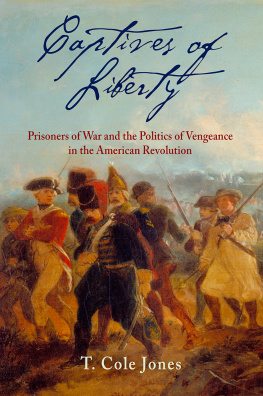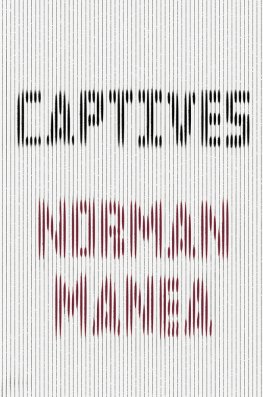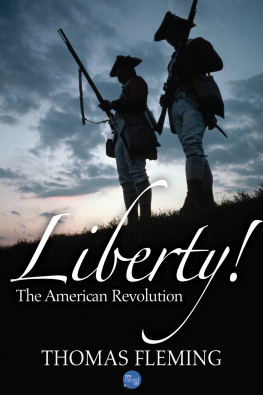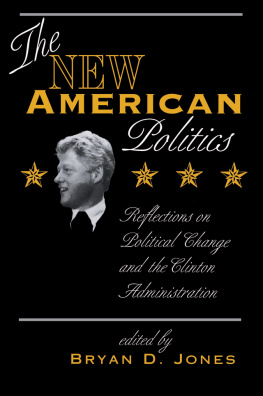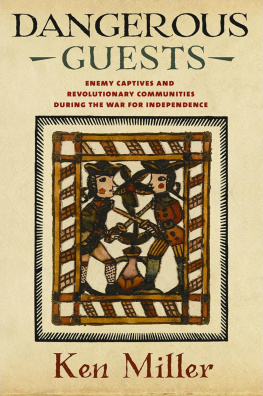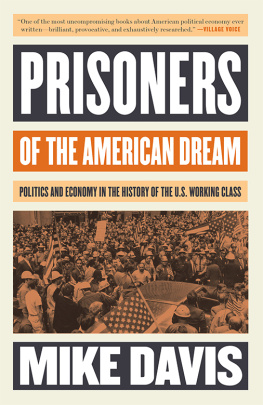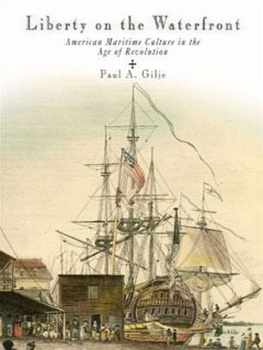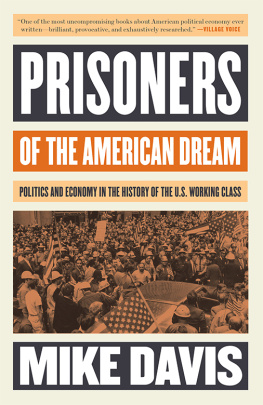T. Cole Jones - Captives of Liberty: Prisoners of War and the Politics of Vengeance in the American Revolution
Here you can read online T. Cole Jones - Captives of Liberty: Prisoners of War and the Politics of Vengeance in the American Revolution full text of the book (entire story) in english for free. Download pdf and epub, get meaning, cover and reviews about this ebook. year: 2019, publisher: University of Pennsylvania Press, genre: Politics. Description of the work, (preface) as well as reviews are available. Best literature library LitArk.com created for fans of good reading and offers a wide selection of genres:
Romance novel
Science fiction
Adventure
Detective
Science
History
Home and family
Prose
Art
Politics
Computer
Non-fiction
Religion
Business
Children
Humor
Choose a favorite category and find really read worthwhile books. Enjoy immersion in the world of imagination, feel the emotions of the characters or learn something new for yourself, make an fascinating discovery.
- Book:Captives of Liberty: Prisoners of War and the Politics of Vengeance in the American Revolution
- Author:
- Publisher:University of Pennsylvania Press
- Genre:
- Year:2019
- Rating:3 / 5
- Favourites:Add to favourites
- Your mark:
- 60
- 1
- 2
- 3
- 4
- 5
Captives of Liberty: Prisoners of War and the Politics of Vengeance in the American Revolution: summary, description and annotation
We offer to read an annotation, description, summary or preface (depends on what the author of the book "Captives of Liberty: Prisoners of War and the Politics of Vengeance in the American Revolution" wrote himself). If you haven't found the necessary information about the book — write in the comments, we will try to find it.
T. Cole Jones: author's other books
Who wrote Captives of Liberty: Prisoners of War and the Politics of Vengeance in the American Revolution? Find out the surname, the name of the author of the book and a list of all author's works by series.
Captives of Liberty: Prisoners of War and the Politics of Vengeance in the American Revolution — read online for free the complete book (whole text) full work
Below is the text of the book, divided by pages. System saving the place of the last page read, allows you to conveniently read the book "Captives of Liberty: Prisoners of War and the Politics of Vengeance in the American Revolution" online for free, without having to search again every time where you left off. Put a bookmark, and you can go to the page where you finished reading at any time.
Font size:
Interval:
Bookmark:

EARLY AMERICAN STUDIES
Series editors:
Daniel K. Richter, Kathleen M. Brown,
Max Cavitch, and David Waldstreicher
Exploring neglected aspects of our colonial,
revolutionary, and early national history and culture,
Early American Studies reinterprets familiar themes and
events in fresh ways. Interdisciplinary in character, and
with a special emphasis on the period from about 1600
to 1850, the series is published in partnership with the
McNeil Center for Early American Studies.
A complete list of books in the series
is available from the publisher.

Prisoners of War and the Politics of Vengeance in the American Revolution
T. Cole Jones

UNIVERSITY OF PENNSYLVANIA PRESS
PHILADELPHIA
Copyright 2020 University of Pennsylvania Press
All rights reserved. Except for brief quotations used for purposes of review or scholarly citation, none of this book may be reproduced in any form by any means without written permission from the publisher.
Published by
University of Pennsylvania Press
Philadelphia, Pennsylvania 19104-4112
www.upenn.edu/pennpress
Printed in the United States of America on acid-free paper
1 3 5 7 9 10 8 6 4 2
A Cataloging-in-Publication record is available from the Library of Congress
ISBN 978-0-8122-5169-2
To my loving parents, Randy and Connie Jones


I have made a concerted effort to accurately reproduce the often inconsistent eighteenth-century spelling, capitalization, and punctuation used in the sources I have consulted. When necessary for comprehension, I have added punctuation or clarifying words, which are clearly denoted in brackets. Throughout the book I have referred to those inhabitants of Great Britains North American colonies who embraced the struggle against the Crown as revolutionaries or simply Americans and those who supported reconciliation with Britain as loyalists. I have eschewed the laudatory or derogatory terms patriot, rebel, and tory. Additionally, I have referred to those subjects of the Holy Roman Empire who served as British military auxiliaries as Germans or Britains Germanic allies. Only when I am sure the soldiers in question came from Hesse-Kassel or Hesse-Hanau have I called them Hessians, despite the widespread American practice of referring to all German auxiliaries as Hessians. Similarly, I have referred to the indigenous inhabitants of North America as Native Americans or Indians except in instances where the sources allowed me to name the specific group or nation to which an individual belonged.
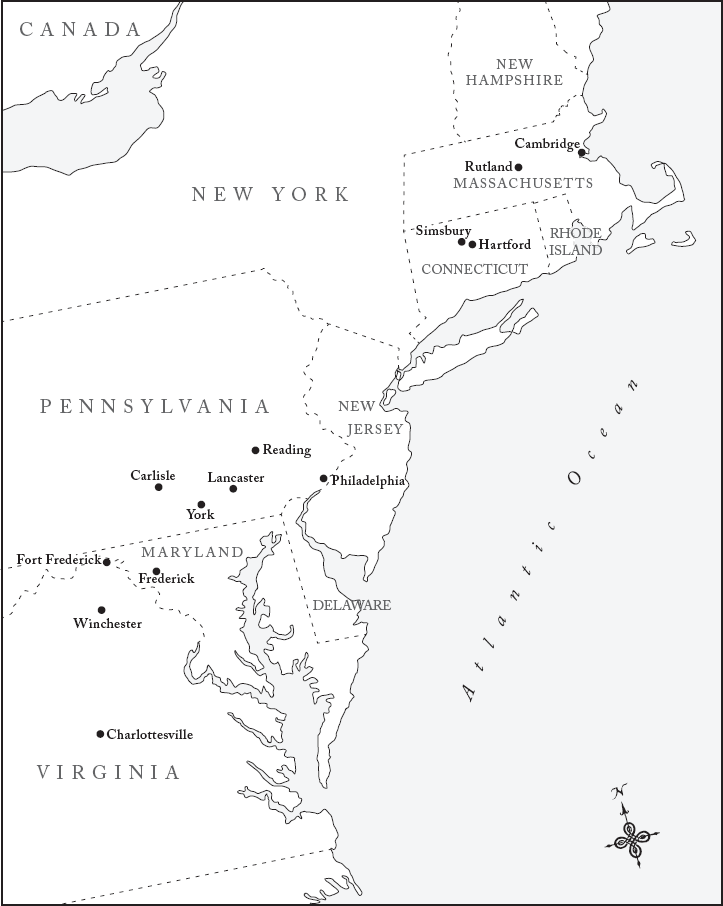
Map 1. Principal internment sites for British and German prisoners of war, 177583.
Words About War

This is a story about the violence of war, the rules societies make to control it, and what happens when they abandon those restrictions. It is a story of an infant nation that enshrined the rules of war in its founding documentthe Declaration of Independenceonly to repudiate them in thought, word, and deed. It is a story of a cycle of violence, retaliation, and revenge so gruesome that it begged to be forgotten. At its center, this is a story about how a colonial war for independence became the American Revolutionary War.
* * *
In early December 1775, the elected representatives of the thirteen British colonies in America resolved to remind the government in London that even armed conflict has rules. Already aware of Thomas Jeffersons persuasive pen, the Continental Congress looked to the thirty-two-year-old Virginia delegate to draft a declaration protesting the British abuse of American prisoners of war and enunciating the stance that violence should be restricted to the field of battle. As Jefferson phrased it, Congress was determined that this conflict would not be decided by reeking vengeance on a few helpless captives, but by atchieving success in the fields of war. Jefferson was the ideal choice for the declarations draftsman. Few in Congress could boast either his depth of knowledge or his breadth of reading on the prevailing European conceptions of how war should be conducted. Like most of his fellow delegates, Jefferson believed that, though clearly misled by a tyrannical ministry, the British people remained brave and civilized.
To Jeffersons horror and indignation, however, in late 1775 it appeared as if the British had abandoned the contemporary European rules of warin other words, the cultural norms of warwhich emphasized restraining violence and treating enemy prisoners humanely, according to their military rank and social station. While these norms reflected the hierarchical social structure of monarchical Europe, enemy prisoners of all ranks benefited. Once captured, they were to be objects not of violence but of compassion. In his stern reproof, Jefferson reminded his British readers that it is the happiness of modern times that the evils of necessary war are softened by refinement of manners and sentiment, and that an enemy is an object of vengeance, in arms and in the feild [sic] only. By contrast, royal forces seemed determined to revive antient barbarism, and again disgrace our nature with the practice of human sacrifice. Time and again, British generals had made it clear that in their eyes the American conflict was not a war but a rebellion that had to be suppressed, violently if necessary. As Jefferson crafted his declaration, American prisoners starved in pestilent prisons under the constant threat of execution for treason, while British prisoners in American custody enjoyed every comfort for which captivity and misfortune called. In deference to General George Washingtons negotiations with his British counterpart, Jeffersons declaration was never sent, but Congress echoed his sentiments when it resolved on January 2, 1776, to indict the British for the execrable barbarity, with which this unhappy war has been conducted. Despite deep provocation, Congress could take pride that the American cause had not been stained by such inhumanity.
Three years later, as governor of Virginia, Jefferson penned a very different declaration on the conduct of war. In the intervening period, British and Native American raiding parties had plagued Virginias frontiers; bands of armed loyalists had plundered its countryside; thousands of its enslaved Africans had fled to British lines, many taking up arms against their former masters; hundreds of Virginias soldiers and sailors had perished in British jails and prison ships; and the Royal Navy had terrorized its coastline. To compound the governors concerns, Congress had saddled Virginia with the responsibility of housing and feeding thousands of enemy prisoners anxious for an opportunity to rejoin their comrades. With a British army ensconced in Georgia and poised to march northward, it looked as if they might soon get their chance. In late 1779 Jeffersons Virginia was surrounded by enemies from both within and without, enemies who evinced no intention of observing the usage of polished Nations; gentle and humane. Instead, as he apprised John Jay, they were guilty of committing ravages and enormities, unjustifiable by the usage of civilized nations. This was the context in which Jefferson expressed a fundamentally different vision of the conduct of war from that which he had espoused in the waning days of 1775. As he noted to a Virginian officer in enemy custody, the British had transformed the conflict into a contest of cruelty and destruction, and henceforth Americans would contend with them in that line, and measure out misery to those in our power. This was not an idle threat of proportional retaliation for British misdeeds as sanctioned by the European laws of war. This was the deliberate articulation of a radical alteration in the revolutionaries conduct of the war, now to be carried out with a severity as terrible as universal.
Font size:
Interval:
Bookmark:
Similar books «Captives of Liberty: Prisoners of War and the Politics of Vengeance in the American Revolution»
Look at similar books to Captives of Liberty: Prisoners of War and the Politics of Vengeance in the American Revolution. We have selected literature similar in name and meaning in the hope of providing readers with more options to find new, interesting, not yet read works.
Discussion, reviews of the book Captives of Liberty: Prisoners of War and the Politics of Vengeance in the American Revolution and just readers' own opinions. Leave your comments, write what you think about the work, its meaning or the main characters. Specify what exactly you liked and what you didn't like, and why you think so.

